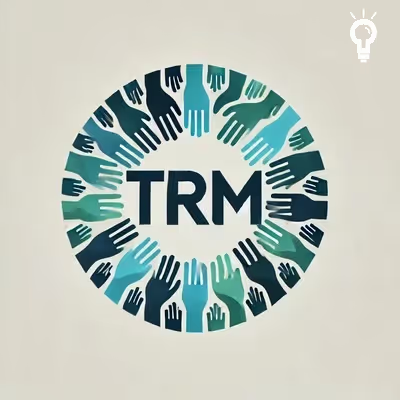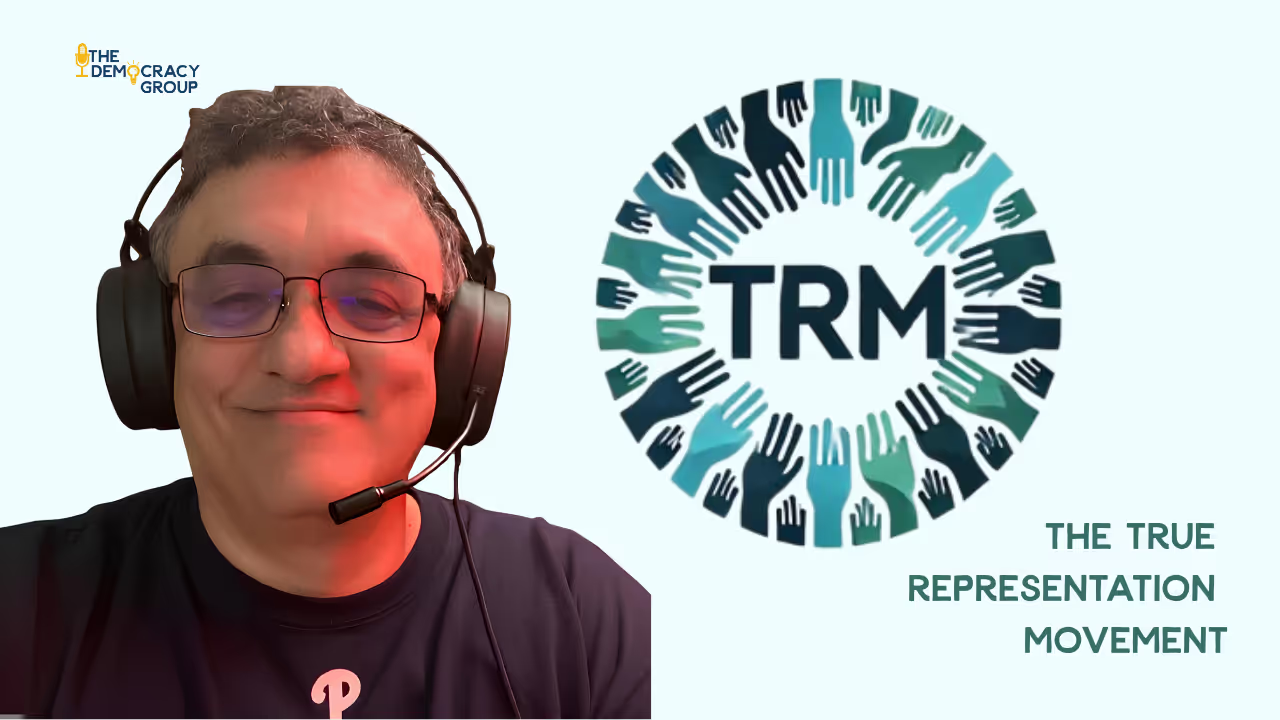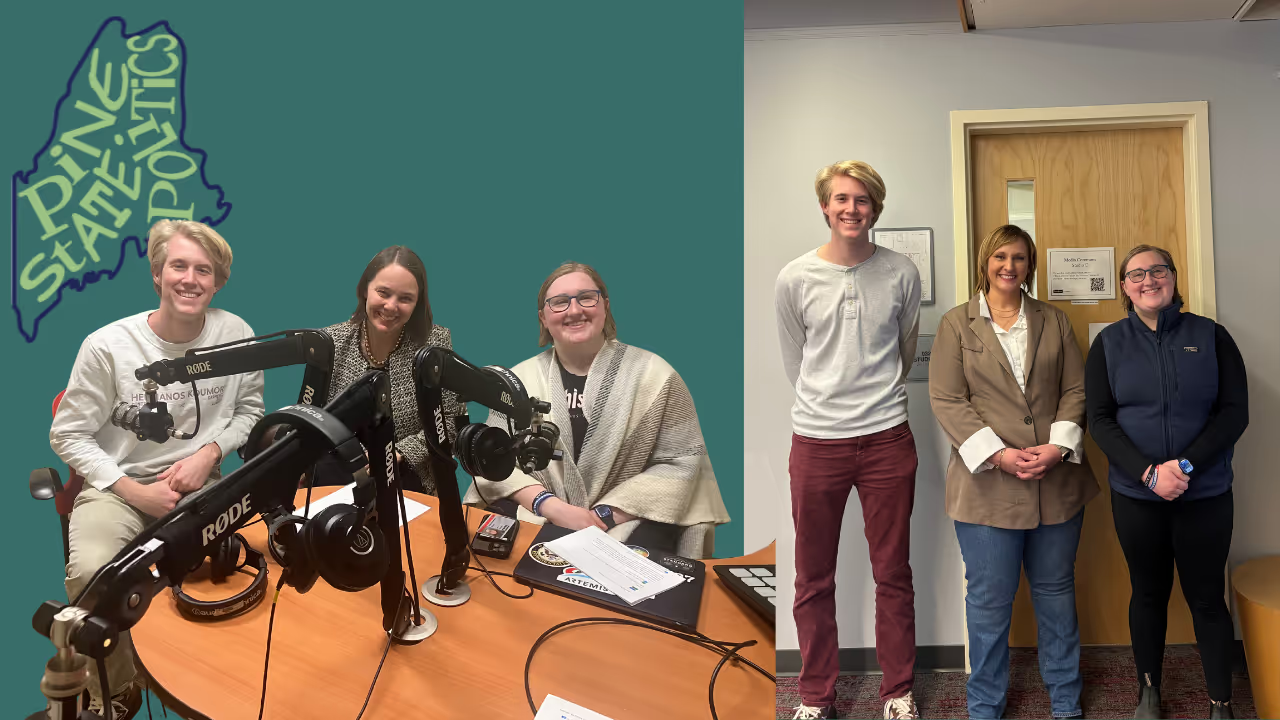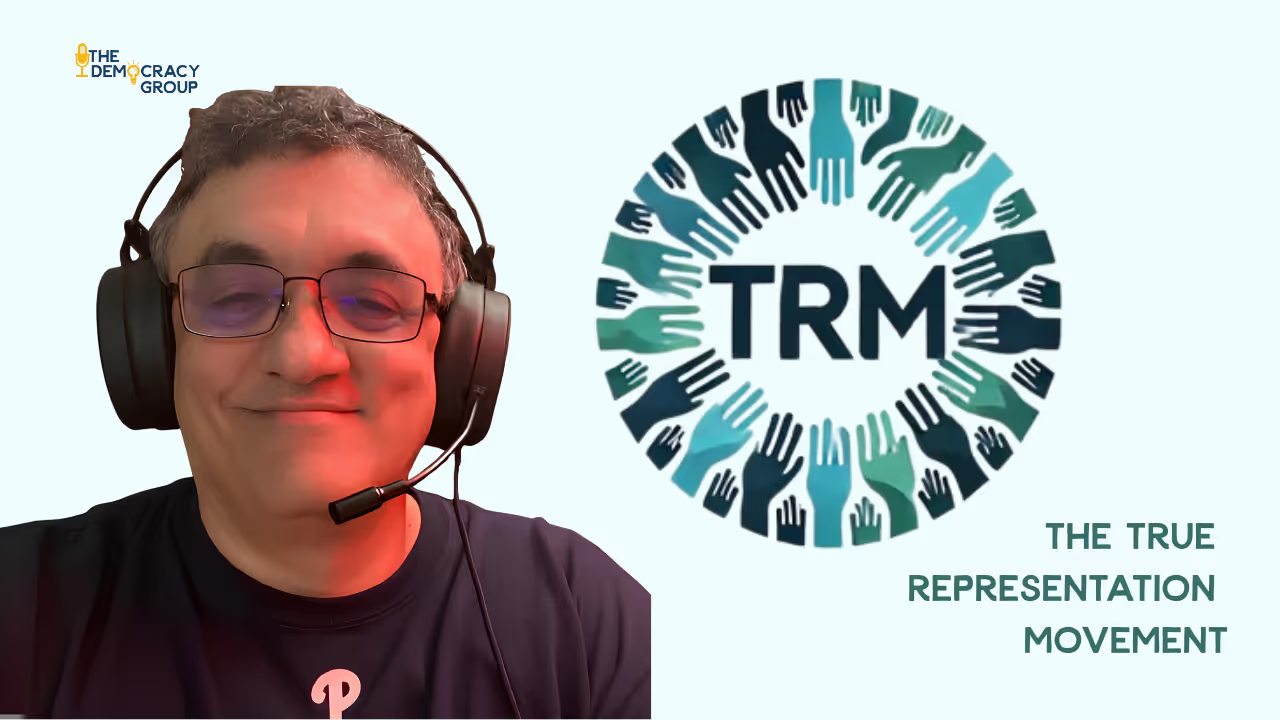
In-depth conversations with activists, scholars, journalists, and politicians on the front lines of the fight for real democracy
The TRM Podcast is the official podcast of The True Representation Movement and features in-depth conversations with activists, scholars, journalists, and politicians on the front lines of the fight for real democracy. We dig into the issues that matter, guided by a vision of government that truly represents the will of the people — not parties or donors.
This wide-ranging and deeply reflective conversation revolves around shaping the eligibility criteria for TRM’s (True Representation Movement) citizen voting groups—specifically the controversial idea of restricting participation to working-class individuals. One side defends the restriction as necessary to prevent elite capture and ensure authentic representation of everyday struggles; the other warns it may alienate potential allies and replicate the exclusionary practices TRM seeks to replace.The dialogue branches into deeper themes: how generational wealth—more than income—shapes access and influence, why asset ownership trumps salary in determining life chances, and how disillusionment across class lines could be harnessed rather than deepened. The two also critique bloated NGO ecosystems and technocratic media bubbles, explore participatory budgeting models from Brazil and Ireland, and unpack the hidden power structures in "inclusive" democracies.Importantly, the conversation lands on two strategic points: (1) TRM should avoid institutional bloat by rejecting salaried structures in favor of volunteer-driven, skill-based collaboration, and (2) to maintain moral and operational integrity, TRM must grow organically and equitably, never losing sight of the voices it was built to empower.In short: The mission isn’t about perfection—it’s about better. And better means building power from below, resisting co-optation, and delivering real wins that prove ordinary people can govern themselves.
In this episode of The TRM Podcast our guest is Bill Pluecker, a farmer, small business owner, and independent representative for Maine’s 44th District. Bill’s work in the legislature is grounded in his life on the farm, giving him a rare perspective on how laws actually affect communities. In this conversation, we talk about what it means to serve in a citizen legislature, how Maine connects local farmers to those who need food most, and the delicate balancing act between economic development, environmental goals, and preserving farmland.
In this episode of the Tiara Podcast, Dr. Ndindi Kitonga discusses the founding and mission of Angels Workshop School, a micro democratic school in Los Angeles that empowers youth to participate fully in shaping their learning environment and engaging with society. Rooted in humanistic and critical pedagogy, the school replaces top-down authority with shared decision-making, collective problem-solving, and curriculum shaped by both student interest and social relevance. Dr. Kitonga critiques traditional and even "progressive" schools for offering only surface-level autonomy, and emphasizes that true democratic learning must cultivate not only freedom but responsibility, self-assessment, and political consciousness. The school operates on a pay-what-you-can model, supports marginalized students (including neurodivergent and LGBTQ+ youth), and actively involves students in real-world issues such as homelessness and Palestine. Alumni stay connected, often becoming teachers or activists, reflecting the school's success in fostering lifelong civic engagement.

Ahmed Bouzid is an organizer, writer, technologist, and podcaster committed to challenging concentrated private power and revitalizing democracy. He is the founder of the True Representation Movement (TRM), a civic initiative that seeks to reinvent democratic participation by giving citizens a direct and unfiltered voice in shaping policy. Through his essays, books, and podcasts, including the True Representation Movement Podcast, Bouzid advocates for new models of representation, media accountability, and grassroots empowerment. He is a Contributing Editor at the Social Epistemology Review and Reply Collective, where he engages with questions of truth, power, and public discourse, and a regular contributor at The Fulcrum. His activist writings, including The Credo: On the Ills of Concentrated Private Power and The True Representation Model: A Primer, articulate a framework for resisting oligarchic control and reclaiming democratic agency. In parallel, Bouzid has written books on technology and society, including Technology at a Crossroads (Hopkins & Hurst, 2025), Generative AI for Executives (Apress, 2024), and The Voicebot Age (Hopkins & Hurst, 2024), works that interrogate the social and political stakes of our rapidly evolving technological landscape.

What is direct democracy, and how does it give citizens the power to shape laws directly? Learn how referendums and ballot initiatives work, their pros and cons, and how they impact civic engagement and political polarization in the United States and beyond.
Read Post
Host Ahmed Bouzid shares rapid developments in creating change at the TRM podcast and using his tech background to advance the good work in the democracy sphere.
Read Post
This Bowdoin duo is demystifying Maine elections
Read Post
Host Ahmed Bouzid shares rapid developments in creating change and using his background as a technologist to advance the good work in the democracy sphere.
Read Post